
March | April 2024 | Vol. 20 No. 2 A publication of the Wisconsin Institute of CPAs | wicpa.org Plus: New ERC program | 14 CTA filing requirements | 18 Reaching next-gen talent | 28 Employee handbooks | 40 Dominic Ortiz, CPA, CGMA | 8 Big Breaks
THURSDAY, APRIL 25
NEW BERLIN ALE HOUSE
REGISTRATION INCLUDES
3 Games of Bowling
Shoe Rental
Food & Beverages

*
EVENT AWARDS & PRIZES
$250+ in Team Awards & Prizes
$100+ in Individual Prizes
Bowling Gift Card Package
For more information and to register, visit wicpa.org/BowlingNight
must be present when awards and prizes are announced to receive an award or prize.
*Attendee
8
Features Columns
8 Big breaks

Dominic Ortiz, CPA, CGMA, started building his career at a new casino in Kansas and ultimately became the current CEO of Potawatomi Casino & Hotel in Milwaukee. Read about his journey as a Native American CPA.
By Marcia Tillett-Zinzow
14 Voluntary disclosure program for ERC claims
A new IRS program presents an opportunity for employers to repay the IRS for ERC claim refunds for which they were ineligible. Deadline to apply is March 22
By Jim Brandenburg, CPA, MST
18 What every CPA should know about the CTA Failure to file a Beneficial Ownership Information report, required for some companies by the Corporate Transparency Act, can result in significant civil and criminal penalties.
By Randy S. Nelson, CPA, JD
24 8 critical elements of an effective engagement letter
To help protect yourself and your firm, make sure your engagement letter has these eight elements.
By Deborah K. Rood, CPA, MST
28 HUMAN RESOURCES
Reaching next-gen talent with high school visits
Hosting high school students plays a pivotal role in helping to change perceptions of the accounting profession among young people.
By Victoria Spencer
32 PROFESSIONAL DEVELOPMENT
5 commonsense steps to successful networking Networking might not be an instinctual skill, but it is vital for seeking new business and expanding your network.
By Daniel Kochka, CPA, CFE, MBA
36 EMPLOYEE RELATIONS

14

Departments
The ethics of DEI: Cultivating a positive workplace Committing to diversity, equity, and inclusion initiatives is more than an ethical consideration.
By Elizabeth Pittelkow Kittner, CPA, CGMA, CITP
40 PRACTICE MANAGEMENT
Key employee handbook policies for 2024
Employee handbook policies should be drafted with care and kept up to date to avoid legal entanglements.
By Jill
Pedigo Hall,
JD, and Erica A. Storm, JD
3 Outlook | chair’s letter
4 In Touch | president & CEO’s message
22 Kudos | members in the news
31 Welcome | new members
34 Memorials | departed members
1 On Balance March | April 2024 wicpa.org
Vol. 20
2 A publication of the Wisconsin Institute of CPAs | wicpa.org
March | April 2024
No.
28
On Balance is published five times a year by the Wisconsin Institute of Certified Public Accountants (WICPA). Change of address should be sent to: Membership, W233N2080 Ridgeview Pkwy, Suite 201, Waukesha, WI 53188; Phone: 262-785-0445 or 800-772-6939; Fax: 262-785-0838; email: comments@wicpa.org. Statements and opinions expressed are those of the authors and not necessarily those of the WICPA. Publication of an advertisement does not constitute an endorsement of the product or service by On Balance or the WICPA. Articles may be reproduced with permission. © Copyright 2024 On Balance
2023-2024
WICPA OFFICERS/BOARD MEMBERS INSIDE
STAFF
Chair
Matthew J. Schaefer, CPA, CGMA
Chair-elect
Ryan J. Hanson, CPA, CGMA
Past Chair
Steven A. Pullara, CPA, CGMA
Secretary/Treasurer
Lucien A. Beaudry, CPA, JD
Directors
Christopher M. Cholka, CPA, CGMA
Jessica B. Gatzke, CPA, MST
Tori M. Morrow, CPA, CGMA, MBA
Donna R. Scaffidi, CPA
Stacy A. Stinson, CPA
AICPA Council
Ruth A. Kallio-Mielke, CPA
Neil R. Keller, CPA/ABV, CVA
President & CEO
Tammy J. Hofstede
Design & Layout
Brett Stallman
Advertising
Sue Daniels
Editor
Marcia Tillett-Zinzow
Printing
Special Editions

EPSA
EPSA USA is focused on helping companies of all sizes take advantage of the R&D tax credit at the federal/state level. Our experts help identify qualified research expenses that yield a large tax benefit for our clients.
A complimentary assessment is available at www.us.epsa.com.
Pearl Insurance
Pearl Insurance has provided professional liability insurance to accountants for 60 years with comprehensive and competitively priced coverage. By continuously evolving insurance plans, we stay ahead of the curve as an industry leader with coverage that is responsive to the needs of accounting professionals.
Waukesha State Bank
Established in 1944, Waukesha State Bank is one of the largest locally owned and independent community banks in Wisconsin, with full-service offices in Brookfield, Delafield, Menomonee Falls, Mukwonago, Muskego, New Berlin, Oconomowoc, Pewaukee, Sussex and Waukesha. For more information, visit www.waukeshabank.com. Member FDIC.
These affinity partners and more can be found at wicpa.org/discounts.
On Balance March | April 2024 2 wicpa.org
online!
Join us
H NEW Affinity Partner H
Check out our featured member benefit providers

OUTLOOK | CHAIR’S LETTER
“As your WICPA board chair this past year, I have been humbled by your trust, professionalism and eagerness to focus on the needs of CPAs within our state.”
Wrapping It Up
By Matthew J. Schaefer, CPA, CGMA
Over the past months, I have typically spent a couple of nights a week at a small community library reviewing emails, updating my calendar, and writing articles for this magazine. And every couple of months, when I open my email on my phone in the reading and study area, a timely reminder has arrived from our editor, stating that my article’s due date is near. I find as I write these words that there has been an evolution from a sense of fear of not being able to convey my thoughts to anticipation of what to include within the next article.
These past few months, my topics have continued to build on the evolution of the profession and the theme of change. I have been in many meetings and seen multiple participants ask difficult questions on how to adopt and adapt to the constant change in our profession. Through the committees, board meetings and staff conversations, there has been a continued focus on what “we” can do for the membership. This focus includes popular topics of discussion, including pipeline development, tax initiatives, organizational changes, legislative updates or promoting our profession’s value. These discussions include not only what this organization can do for the profession today, but also an additional focus on what those needs will be in the future.
We will always need the young, inquisitive and energetic members as well as the mature professionals with an invaluable resource of experience. We have no doubt seen an evolution and change of needs within our firms, organizations, businesses and agencies. As CPAs, however, we continue to evolve with the changes that are presented not only to our organizations but also to the profession. The WICPA continues to focus on many membership needs, from small offices and startups to sophisticated firms and established businesses to organizations within not only large metropolitan areas but also small and rural geographies.

The past few years have not provided easy solutions to the complex issues facing our profession and related organizations. However, this period of time has provided all of us a diversity of viewpoints in order to create an organic understanding of those issues. This diversity is one of the greater strengths of this organization. We focus on the mission of the WICPA and strive to find everyday solutions for our members and stakeholders.
As your WICPA board chair this past year, I have been humbled by your trust, professionalism and eagerness to focus on the needs of CPAs within our state. As I wrap up my year of service, I thank you and wish you all the best. Stay well — and keep moving forward.
3 On Balance March | April 2024 wicpa.org
Matthew Schaefer, CPA, CGMA, the 2023–2024 chair of the WICPA board of directors, is senior vice president/chief credit officer for the Bank of Wisconsin Dells. Contact him at 608-254-3624 or mschaefer@dellsbank.bank.
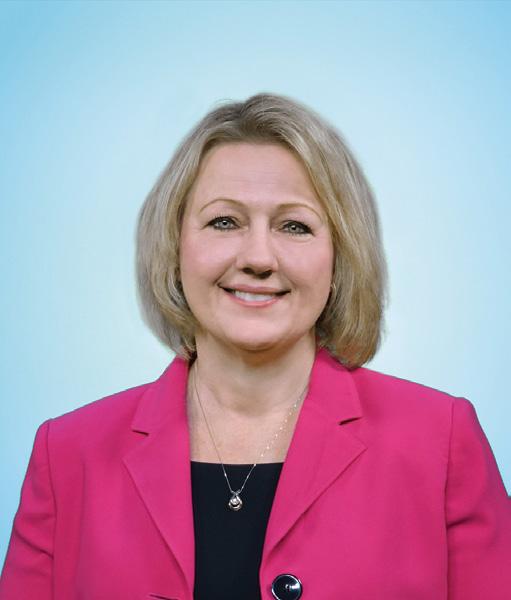
“Together, we are shaping the future through networking, educational opportunities, legislative activities, building the pipeline, and diversity initiatives to ensure the WICPA is the innovative and trusted resource for the accounting profession in Wisconsin.”
WICPA 2023
As we move toward closing out our fiscal year-end on April 30, I would like to reflect on our accomplishments — which were made possible by your support. I am excited to highlight and share our successes with you.
Advocacy
Advocacy promotes the profession and protects its credibility, and it is a powerful benefit of your membership. We were actively involved in a number of legislative bills and issues over the last year, including the following:
• Exempted CPAs from two bills that that would have disrupted licensing and mobility (due to educating and relationships built with legislators who now understand the structure of CPA licensure in Wisconsin)
• Provided input on legislation for a tax-free retirement exemption and consolidating tax brackets; adopting federal tax provisions related to depreciation; and increasing audit limits for charitable organizations
• Supported and passed the personal property tax elimination

• Provided input and introduced legislation in February to equalize the interest overpayment and underpayment rates in Wisconsin, as well additional cleanup, clarity and consistency
• Supported and passed (along with 24 other states) the high school graduation requirement of a one-half financial literacy credit, starting in 2028
• Opposed changing the name of the Wisconsin Earned Income Tax Credit (EITC), which would have created confusion and inconsistency with the federal EITC name
• Collaborated with the Wisconsin Department of Revenue (DOR) to review, support and pass legislation to adopt federal changes to the internal revenue code for state tax purposes
Took an entourage of WICPA representatives to Washington DC, where I attended an AICPA Council meeting, and we all visited our Wisconsin legislators on Capitol Hill to discuss and support establishing accounting as part of STEM, the Simplify Automatic Filing Extensions (SAFE) Act, the Freedom to Invest in Tomorrow’s Workforce Act, and the Fiscal State of the Nation resolution
• Provided testimony on the Department of Safety and Professional Services (DSPS) customer service issues and concerns that members, CPA candidates and licensees continuously voice to me
We also kept members up to date on the new Beneficial Ownership Information (BOI) Reporting requirement. We have been working with the State Bar Association to determine where the line between the practice of law and the practice of
On Balance March | April 2024 4 wicpa.org
IN TOUCH | PRESIDENT &
MESSAGE
CEO’s
Gov. Evers signed Wisconsin Act 60 to require one-half credit of personal financial literacy to graduate.
accounting is drawn and whether CPAs in Wisconsin can help clients with BOI reporting without attorney supervision. We currently have an April meeting set with the State Bar Association and WICPA members, where we hope to discuss this topic and create clarity and guidance for Wisconsin CPAs.
Focusing on the CPA pipeline
Along with the governor’s proclamation for November as “CPA Appreciation Month,” we successfully launched the CPA pipeline initiative Level Up With Accounting! Our volunteer members went into classrooms to talk about accounting and reached over 1,000 high school students. We created a membership category for high school students as well as new marketing materials and a high school and college online community. We have produced several membershipand accounting-related videos — which highlight diversity in the profession among other things — and enhanced website pages that provide everything students and educators need to know about becoming a CPA. We also launched an Instagram account specifically for students.

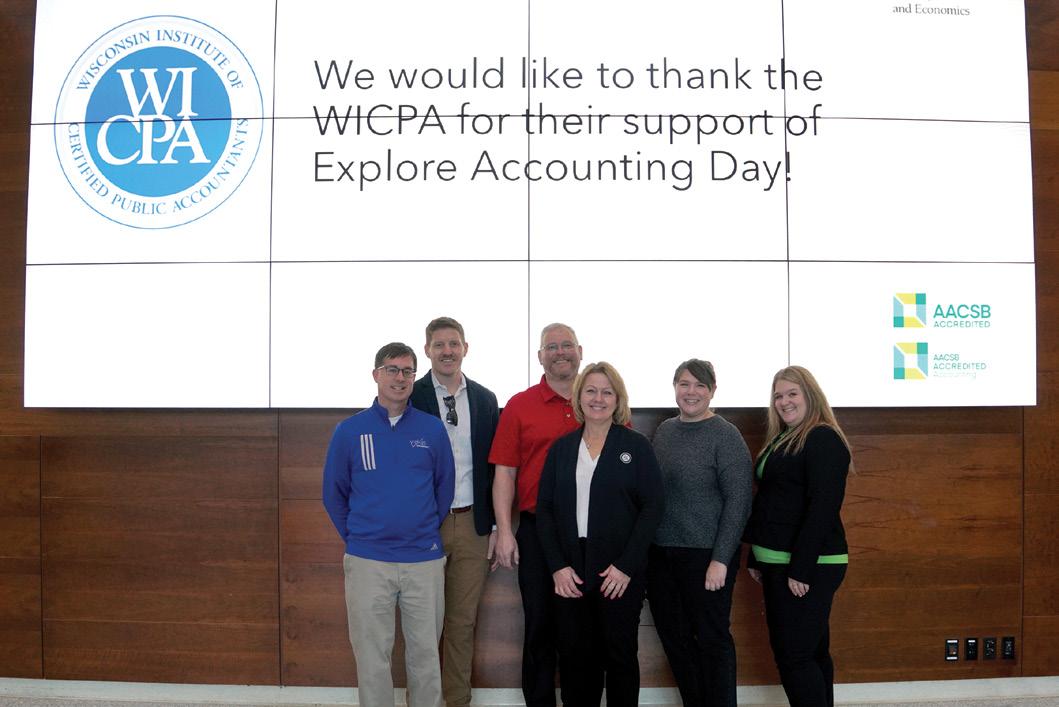
school (grades K–4) classrooms, reading a book to the class, and discussing the basics of money and savings. The WICPA Educational Foundation provides everything you need: a moneythemed book, a teacher/parent guide and a gift for each student.
COVID and the CPA Exam

The WICPA Educational Foundation awarded nearly $30,000 in accounting awareness grants for teachers to take their classes to visit organizations and learn more about accounting through conversations with their CPA staffs. Many firms and organizations assisted with this effort by completing forms we created to host accounting-related presentations, tours and activities, which were then provided to the high school educators to help them plan their activities.
We continue to collaborate and support colleges and high schools by bringing in members to discuss their careers, and we continue to attend DECA and FBLA events to create awareness of accounting career opportunities.
To continue our outreach to younger students, the Reading Makes Cents program is back for Financial Literacy Month in April and Money Smart Week. These financial literacy activities involve simply visiting one of your local elementary
One of the problems created by COVID was the loss of parts of the CPA Exam by exam candidates. We’ve been hearing these concerns from Wisconsin candidates, firms and educators, and we know that 34 other states provide relief to their CPA candidates who lost parts of their exams. In response, the WICPA strongly advocated for Wisconsin to do the same. Through my relationships and efforts with key legislators, state administrators and NASBA, I was able to obtain the list of 249 candidates who were impacted by COVID and lost exam parts and, accordingly, created guidance (according to the statute) so they could request relief from DSPS and the Accounting Examining Board. I personally contacted and have assisted more than 30 candidates who were impacted by COVID, enabling them to finish their exams and be on their way to becoming licensed CPAs — without additional time and cost. I am currently working with the Accounting Examining Board to develop a process with DSPS to process these requests timely and efficiently.
In addition, over the last year we kept students and educators updated with the significant changes to the CPA Exam that became effective Jan. 1. The WICPA also strongly advocated for a rule change to extend the timing to complete the exam from 18 months to 30 months, as several other states have already implemented.
Diversity
The WICPA and WICPA Educational Foundation continued their 27-year partnership with and support of the Young Entrepreneurial Scholars (YES) program. The goal of the YES program is to expand opportunities for minority students and increase diversity in the accounting profession.
5 On Balance March | April 2024 wicpa.org
CRIMINAL JUSTICE SPORTS & ENTERTAINMENT PUBLIC INDUSTRY GOVERNMENT ENVIRONMENTAL FASHION TECHNOLOGY NONPROFIT Scan this QR Code to access videos, resources, and sign up for student membership. Audit: Travel around the world for a variety of business types. Business Valuation: Tell people what their business is worth. Entrepreneur: Start your own business. Financial Forensics: Investigate financial crimes. Financial Planning: Advise the rich and famous. Information Technology: IT, data analytics or cybersecurity. Managerial: Handle investments, budgets and forecasts. Sustainability: Analyze a company’s social and environmental impact. Tax: Help clients increase savings and avoid tax penalties. WICPA CAN HELP YOU LEVEL UP IN ACCOUNTING! AUDIT BUSINESS VALUATION FINANCIAL PLANNING ENTREPRENEUR SUSTAINABILITY FINANCIAL FORENSICS INFORMATIONTECHNOLOGY MANAGERIAL TAX CHOOSE YOUR INDUSTRY CHOOSE YOUR SPECIALTY You can choose from a variety of specialty areas based on your interests and skills! Every type of organization needs accounting professionals! Become a CPA Become the most trusted and respected player in the game. Choose the career of your dreams You’ve unlocked a career full of adventure. Internships Get in the game with an accounting related job. College Earn a WICPA scholarship and graduate from college. Join the WICPA Start your quest by joining a community of accounting pros. PERKS LARGE EARNING POTENTIAL MAKE AN IMPACT FLEXIBILITY HIGH DEMAND JOB SECURITY WI CPA H ME ACCOUNTING ACCOUNTING JOBS 00 00 00
WICPA members served on an accounting panel to over 100 high school students at UW-Whitewater Explore Accounting Day.
We are continuing to develop relationships with Milwaukee Public Schools, and we are exploring how we can work together to bring accounting into the district’s classrooms. Several of our new videos will feature the topic of diversity in the profession, including one about the YES program.
With the relationship built with the DOR, I was able to have a meeting to connect DOR Secretary Peter Barca with Bill Coleman, CPA, of the YES Program, so they could discuss the opportunities for YES participants to intern with the DOR.
Continuing professional education (CPE) and events
We continue to add value to WICPA membership by providing over 20 free CPE credits to members. We continued to hold all our conferences in person with livestream and on-demand options.

With nearly 300 attendees, the Member Recognition Banquet last May honored the Excellence Awards recipients and recognized membership milestones with new awards presented to 25-, 40- and 50-year members.
Our New CPA Banquet, held in June, was a hit with our newly licensed CPAs. The banquet featured casino-themed entertainment and a presentation by the VP of finance for the Green Bay Packers — including photo opportunities with his Packer Super Bowl ring!
And in September, the Annual Golf Outing was again SOLD OUT.
Our breakfast programs remained (and will remain) virtual so more can attend from around the state, but we kept the popular Individual Income Tax Update as an in-person event


with livestream and on-demand options. We also offered more one-, two- and four-hour livestreamed seminar and webinar programs to continue the trend of shorter CPE increments with the ease of fitting CPE into members’ schedules without necessitating travel.
Our members are the backbone of the WICPA. Without you, we wouldn’t be able to achieve our goals. Together, we are shaping the future through networking, educational opportunities, legislative activities, building the pipeline, and continuing diversity initiatives to ensure the WICPA is the innovative and trusted resource for the accounting profession in Wisconsin.
On Balance March | April 2024 6 wicpa.org
On Balance needs subject matter experts like you to write articles that are relevant, timely and informative for our member readers! Here’s what you get: • Visibility for yourself and your organization • CPE credit for the time you spend writing an article! • Sharpened writing skills: Our editor will make sure your article is clear, concise and correct. • A great addition to your LinkedIn page or your organization’s website u Are YOU our newest author? t Contact Marcia Tillett-Zinzow at mtzinzow@icloud.com. Tammy J. Hofstede is president & CEO of the WICPA. Contact her at 262-785-0445, ext. 4518, or tammy@wicpa.org. Plus: CTAandBOIreporting | 12 EntityselectioninWisconsin | 18 SBIRprogramissue 32 Workforceofthefuture 34 March April2024 Vol.20No.2 ApublicationoftheWisconsinInstituteofCPAs wicpa.org Plus: NewERCprogram 14 CTAfilingrequirements 18 Reachingnext-gentalent 28 Employeehandbooks | 40 Dominic Ortiz, CPA, CGMA | 8 Big Breaks
WICPA members and guests enjoying the 2023 WICPA Member Recognition Banquet.















7 On Balance March | April 2024 wicpa.org Spectrum Investment Advisors, Inc. is an SEC registered investment adviser located in Mequon, WI. Registration with the SEC does not imply a certain level of skill or training. Our Privacy Notice, as well as our Form ADV Parts 2A and 2B and our Form CRS are available for you to view at: https://spectruminvestor.com/disclosures/ Spectrum Investment Advisors 6329 West Mequon Rd. Mequon, WI 53092 262-238-4010 | www.spectruminvestor.com Wealth Management Financial Wellness Retirement Plans At Spectrum Investment Advisors, we guide our clients on their journey toward a brighter financial future. Our core services are built to empower, support, and educate, enabling our clients to make confident and well-informed decisions throughout their financial journey. Are you getting the most from your financial advisor? From tax strategies and wealth management to retirement planning, we cover the spectrum of your financial needs.

On Balance March | April 2024 8 wicpa.org
 By Marcia Tillett-Zinzow
By Marcia Tillett-Zinzow
As an enrolled member of the Prairie Band Potawatomi Nation of Kansas, Dominic Ortiz, CPA, CGMA, is passionate about his heritage. And he’s equally passionate about the CPA profession and the CPA societies that helped him on his path to success. Today, at age 46, he is not only a CPA but also CEO of the Potawatomi Casino & Hotel in Milwaukee. He was recently named CEO of the Year by BizTimes Milwaukee and was one of five nominees for an award of the same name sponsored by the Milwaukee Business Journal.
Ortiz gained small business experience while he was in college at Haskell Indian Nations University, where he earned an Associate of Arts degree in 1998. He had gotten acquainted with Native people of all different tribes there, and when he met some people from the Southwest, they started a business together selling Native American-made jewelry. They even had a business plan, which eventually won Ortiz an award from American Indigenous Business Leaders,1 a nonprofit organization whose mission is to “equip young Indigenous Business Leaders to lead enterprise in their own communities.” The award would bring Ortiz visibility that would later seal his fate.
Understanding “CPA”
When he was in college at Haskell, the letters “CPA” meant nothing to Ortiz. He didn’t know what a CPA was. Then he was introduced to Dr. Tom Clevenger, an associate professor of accounting at Washburn University in Topeka, Kansas.
Clevenger had come to the reservation as a consultant to tribal gaming, which was new to the Prairie Band tribe at the time. Ortiz’s father had been elected to the tribal council, which was running the new Prairie Band Casino, so he worked with Clevenger. When Clevenger was diagnosed with cancer, he sought spiritual guidance from Ortiz’s Native grandmother.
“He came to the house to talk with her, and I just happened to come in,” Ortiz said. “He was introduced to me as a CPA — I still didn’t really know what that meant.”
At the time, Ortiz’s brother, Stephen, was studying accounting at Washburn University. Deloitte was doing the audit for the tribe, and Clevenger knew people there. So he was able to open the door for Stephen to get an internship with the Big 4 firm. Ortiz was impressed with that, and when he decided to get out of the jewelry business, he recalled the wise words of Dr. Clevenger.
“He said that if you are able to study financial statements, understand how a business really operates, and be able to read and look through these kinds of key aspects, it could
9 On Balance March | April 2024 wicpa.org
Photography by John Sibilski
(www.aibl.org)
1 Formerly American Indian Business Leaders
ultimately make you into a very powerful business leader and help launch your career into something bigger and better — however you want to see that path,” Ortiz said.
After completing his associate degree at Haskell, Ortiz enrolled in a dual-degree program at the University of Kansas (KU), graduating in 2001 with master’s degrees in accounting and information systems. He was on his path to CPA.
Big break #1
Toward the end of his KU studies, providence stepped in, appearing as then-President of the United States William J. Clinton. When President Clinton was planning to address all the tribal leaders in the United States, he asked for a young tribal entrepreneur to introduce him. Ortiz’s business plan award had put him in the spotlight, and he was chosen to introduce the president.

“So I flew out to Washington and spent a half-day with the president. I addressed about 80,000 people there, introducing President Clinton as the best leader of the free world, and I presented the president with a handmade, sterling silver storyteller bracelet.”
Clinton was so impressed with Ortiz that he pulled him out of the line of tribal leaders and asked him to walk around with him. He also offered to write him a letter of recommendation — which would open an important door for Ortiz a few months later as he was wrapping up his college education.
Not having known any CPAs prior to meeting Dr. Clevenger, Ortiz didn’t understand what it took to get into a Big 4 firm. But he had watched his brother achieve an internship and job as a consultant with Deloitte and set his sights on trying to get a Big 4 accounting job.
He succeeded in getting interviews with all of the Big 4 firms, but the first three turned him down flat. “What I finally realized after the third interview was that I didn’t understand the pathway to get there — I didn’t join any clubs; I didn’t have the 4.0 GPA — but I felt I had grit and a very positive experience with the president of the United States behind me,” he said.
Ortiz thought if he could just tell his story, he might get a chance at an entry-level position. Unfortunately, the first three firms never gave him that chance. Feeling discouraged and expecting another rejection, Ortiz walked into the last interview, which was with Ernst & Young (EY), where a pleasant surprise awaited him. As he walked in, he saw the recruiter reading a newspaper.
“The University of Kansas had done a full front-page profile and a big in-depth story on my selection to meet the president of the United States and introduce him. So I walk in the door, and I’m not feeling real big right now. But I walk in, and he puts the paper down, and he says, ‘That’s you!’ I said, yeah, that’s me.”
“
Unless you’re in the society that knows the CPAs, you don’t know that you need to study; that it’s methodical and it’s dedication above all else; that it’s harder to pass than the LSAT, and it’s one of the most difficult credentials in the United States to achieve.
None of the other firms had given Ortiz a chance to tell his story, but this recruiter wanted to hear all about it. Once he shared his experience, the recruiter thanked him for coming in and told him he was hired. “I was just blown away,” he said.
From failure to success
EY supported Ortiz in his quest to take the CPA Exam and become licensed — but he was unaware of the review courses that could help him actually pass the four exam components.
“I failed miserably,” he said. “I didn’t know how to get there. Unless you’re in the society that knows the CPAs, you don’t know that you need to study; that it’s methodical and it’s dedication above all else; that it’s harder to pass than the LSAT,2 and it’s one of the most difficult credentials in the United States to achieve.
On Balance March | April 2024 10 wicpa.org
The Forest County Potawatomi named Ortiz as CEO and GM of Potawatomi Hotel & Casino in July 2021.
2 Law School Admission Test

“And then they said CPA review.”
The Prairie Band Potawatomi Nation paid for his CPA review course, and Ortiz finally passed all four parts of the exam. He spent two years with EY, being trained in technology, risk services and financial audit. Then came a tough call from the Prairie Band Potawatomi Nation, who asked if he would come back and learn to manage casino operations from Harrah’s Entertainment. He accepted, eventually working his way up to CFO of the casino. Together with his brother in executive management, they helped the Nation assume full casino operations from Harrah’s.
Big break #2
Ortiz ultimately joined the Kansas Society of CPAs, and at their first meeting, the executive director encouraged him to represent the Kansas Society in a program the AICPA was putting together: the AICPA Leadership Academy.
He found many mentors there, including current AICPA CEO Barry Melancon and past AICPA chairs Rich Caturano and Paul Stahlin — all of them influential in the profession. Eventually, he was selected to serve on the AICPA Governing Council, where he served for three years before being asked to serve on the AICPA’s board of diversity and inclusion. He served on that board for another three years.
“Then I got a call from Barry Melancon, who said, ‘The nomination committee has voted, and they have chosen you to be on the global board of directors of the AICPA.’ So here I
come, one of the youngest members and the first Native American to ever join the global board of directors of the AICPA,” Ortiz chuckled.
And it all started with one visit to the Kansas Society of CPAs.
“I was lost in the middle of nowhere, with no involvement, not knowing what I could do or how I could give back,” Ortiz said. “And lo and behold, people who care — like the state societies and the AICPA — and who want to reach out and bring people in did that, and they brought me into that circle — helped me understand and gave me confidence, and they continued to educate me and position me for success.”
When he came to Milwaukee, Ortiz came with a plethora of experience running casino gaming operations: Prairie Band Casino & Resort in Mayetta, Kansas; Kickapoo Lucky Eagle Casino in Eagle Pass, Texas; and Soaring Eagle Gaming Properties in Mount Pleasant, Michigan, which consisted of numerous casinos as well as the Saginaw Chippewa Indian Tribal Government Corporate Services.
At Potawatomi, he is engineering a $190 million renovation of the casino with the end goal of making it a jewel for Milwaukee and a national entertainment destination.
Anyone want to bet he succeeds?
11 On Balance March | April 2024 wicpa.org
Potawatomi Casino & Hotel hosts the Annual Hunting Moon Pow Wow, a three-day annual celebration of Native culture, with cash prizes for singing, drumming and dancing.
Marcia Tillett-Zinzow is a freelance writer and editor who lives in Wisconsin. Contact her at mtzinzow@icloud.com.
Photo courtesy of Potawatomi Casino & Hotel
William Ahlstrom
Karl Ahonen
Michael Akers
Ronald Altenburg
James Anderson
John Andres
Laura Arnow
Richard Barry
James Behrend
William Beisenstein
Charles Benjamin
David Benner
Michael Berns
Lawrence Bittner
Karla Blair
James Blinka
Jennifer Bogli
Richard Boulay
Richard Braatz
James Brandenburg
Dana Brunstrom
Myron Buss
Charles Cedergren
David Chapman
John Chidester
Chris Cholka
Timothy Christen
Edward Cichurski
Michela Cobb
William Coleman
Robert Cook
Jonathan Crowell
Powers Daren
Curtis Day
Tyrone Deacon
Gerald Denor
Suzanne Denzine
Patti Desrosier
Jeff Dewane
Linda Dicks
Sean Donahue
Dale Ebert
Kathy-Ann Edwards
Kathryn Erickson
Gary Ertel
Deidre Erwin
Jennifer Fahey
Fred Farris
Delores Fischer
David Fohr
Robert Foulks
Jeffrey Frank
Michael Friedman
Anthony Fuerst
Jessica Gatzke
David Geertsen
Sharon Geertsen
W. Richard Gerhard
John Gerold
Charles Gierl
Charles Gietzel
Alan Giuffre
Robert Goldie
Kathryn Golsteyn
William Goodman
Michael Grams
Kurt Gresens
William Grimmer
Randall Grobe
Douglas Haag
Michael Hablewitz
Ryan Hanson
Walter Harmann
Robert Hartzheim
Scott Haumersen
Katherine Hauser
John Heindel
William Heinrich
Keith Helm
John Hicks
Kathleen Hoffman
Allyson Hofstede
Tammy Hofstede
Steven Hollmann
Katy Hook
Wayne Huberty
Patricia Huettl
Joseph Imhoff
George Jaloviar
Mark Janke
Bradley Jansen
Christine Janssen
Maria Jarvi
Mark Johannsen
David Johnsen
Bryan Johnson
David Johnson
Elizabeth Johnson
Carl Kantner
Lawrence Kean
Jeremy Keil
John Kellerman
Paul Kersten
Kenneth Klemm
Fr. Kurtis Klismet
Michael Konecny
Thomas Koops
Thomas Koplin
Rosanna Kopling
Thomas Kortas
Frederick Kraegel
Nicole Kraus
Dennis Krautkramer
Jason Krentz
Glenn Krieg
Bernard Kristal
Arthur Kronenberg
John Kuhn
Keith Kwaterski
Gregory LaFreniere
David Lauer
Jack Lee
Richard Lindgren
Thomas Luken
Patrick Lyons
Muriel Marx Hoffmann
Lucretia Mattson
Krista McMasters
Michael McNamara
William Merrick
Thomas Mickelson
Howard Miller
James Miller
Tori Morrow
Jean Mosher
Chad Neumann
Terence Niewolny
William O’Loughlin
Jade Olson
Gerald Ontko
Dana Outhouse
Melanie Patterson
Jeffrey Peterson
Ray Petkovsek
Thomas Polacek
James Possin
Gerald Powers
Steven Pullara
Michelle Puls
Keith Radke
Arnab Ray
Richard Reale
Mary Repka
Joseph Rock
Betty Roethle
Douglas Rogers
James Rose
Kenneth Rose
Henry Rueden
John Sawtell
Matthew Schaefer
Thomas Scheidegger
Ruth Schenning
David Schlichting
Eli Schmukler
Robert Schneider
James Schommer
Harold Schroeder
Richard Scott
Steven Seymour
Dan Smith
Derek Smith
Jane Somers
Richard Spencer
Donald Stacy
Josephine Stahl
Jeffrey Steren
Thomas Stolper
Terry Strittmater
William Tatman
Michael Temp
Angela Thomas
Martin Thomas
Dennis Tomorsky
Lawrence Totsky
Scott Tracy
Kim Tredinnick
Debra Trost
Susan Vetrovsky-Goldstone
Lynn Visser-Young
James Wagner
Roberta Ward
Paula Wegner
Thomas Weingarten
Joseph Wenzler
Lori Wermuth
Sarah Whyte
George Wiesner
Susan Wilcox
Raymond Wilson
Robert Wittke
James Woloszyk
Michael Zongolowicz
On Balance March | April 2024 12 wicpa.org Show your commitment and support of the accounting profession today at wicpa.org/EdFund. Your donation to the WICPA Educational Foundation sends a clear message that you believe in the future of the accounting profession. We appreciate your commitment and THANK YOU FOR YOUR SUPPORT.
THANK YOU 2023 Donors!
Special thanks to donating organizations: Deloitte & Touche LLP Ernst & Young LLP Grant Thornton LLP KPMG LLP PwC Wipfli Foundation Inc.
Reading Makes ¢ents Volunteer this April for
Sponsored by the WICPA Educational Foundation

Help Students Get Money-Smart
April is National Financial Literacy Month and a great opportunity for you to help students get smart about money by reading to an elementary school class (K - 4th grade) about the basics of money.
The WICPA Educational Foundation will provide everything you need. For more information and to volunteer, visit wicpa.org/ReadingMakesCents.
13 On Balance March | April 2024 wicpa.org

Voluntary disclosure program for ERC claims
On Balance March | April 2024 14 wicpa.org
 By Jim Brandenburg, CPA, MST
By Jim Brandenburg, CPA, MST

On Dec. 21, 2023, the IRS announced a new Voluntary Disclosure Program (VDP) for the Employee Retention Credit (ERC). This is the latest move by the IRS to address what it considers “dubious ERC claims.” The program presents an opportunity for employers to repay the IRS for ERC claim refunds they received if they have learned they are no longer eligible for the credit. It allows qualifying businesses to repay ERC claim refunds at 80% of what they received and also avoid penalties. The IRS issued Announcement 2024-3 this new program. This is the latest chapter in the ERC saga, which is going on its fourth year now.
In providing this ERC relief, IRS Commissioner Danny Werfel stated:

The disclosure program provides a much-needed option for employers who were pulled into these claims and now realize they shouldn’t have applied.
… From discussions we have had with taxpayers and tax professionals around the country, we understand that there are many employers eager to correct their error but who remain concerned about their ability to pay back the portion of the credit that has been lost to the promoter that brought them into this mess. This new option, with an opportunity to get right with a lower financial cost, provides the relief these taxpayers requested. The new initiative will also help with our ongoing efforts to gather information on promoters who created this situation by aggressively pushing people to apply for the credit.
The details
Employers must apply for the VDP by March 22, 2024.
As outlined in IRS Announcement 2024-3, there are certain qualifications employers must meet to be eligible for the VDP (see below). Businesses or employers that qualify for the program must repay 80% of the tax credit they received. However, if the IRS paid interest on an employer’s initial ERC refund claim, the interest does not have to be repaid.
A business that already received the credit for a prior tax period but now believes it does not qualify for the ERC can apply for this program only if all of the following are true:
“
Recipients of an ERC refund who now are having second thoughts about their eligibility for the credit should closely review the provisions in IRS Announcement 2024-3.
• The employer is not under criminal investigation (and has not been notified that they are under criminal investigation).
• The employer is not under an IRS employment tax examination for the tax period in which they are applying the VDP.
• The employer has not received an IRS notice and demand for repayment of all or part of the ERC.
• The IRS has not received information from a third party that the taxpayer is not in compliance or has not acquired information directly related to the taxpayer’s noncompliance from an enforcement action.
15 On Balance March | April 2024 wicpa.org
1 https://www.irs.gov/pub/irs-drop/a-24-03.pdf

closely review the provisions in IRS Announcement 2024-3. Here are a few other considerations for ERC recipients who are thinking about registering for the VDP:
• IRS disclosure-type programs (like this program for ERC) must be approached with care. While this program offers some favorable ERC settlement terms, if the taxpayer comes forward to register and is not accepted into the program by the IRS, it could put the full 100% of the ERC claim they received at risk. Prior to registering for this program, consider contacting legal counsel to evaluate your situation and the specifics of the VDP.
• The IRS chose 80% as a repayment factor (and thus, a 20% savings for the taxpayer), as 20% was the percentage many third-party firms charged as a fee for an ERC refund claim. The 20% reduction is available to the taxpayer, regardless of what fee, if any, a taxpayer paid to an ERC third-party provider. If a taxpayer registers for the VDP and settles their ERC claim with the IRS at 80%, they can then decide with legal counsel whether to pursue repayment of any fee paid to a third-party provider.
• If a taxpayer has not yet amended their 2021 and/ or 2020 income tax returns, the IRS announcement states that under the VDP the taxpayer is not required to amend their 2020 and/or 2021 tax returns if they pay the IRS the required 80% of their claim.
• Those who meet all the conditions and are interested in signing up for the VDP should not necessarily wait until the March 22 deadline to register. They may
Hypothetical example
Tailor Inc. is a distributor of office supplies. In 2021, Tailor had spoken with Araz, its diligent Wisconsin CPA, who said the company was not eligible for the ERC for two reasons: (1) It did not have a sufficient reduction in gross receipts in 2020 or 2021, and (2) it was not impacted by a government order leading to a full or partial shutdown of its operations.
In 2022, Swipht Corp., an ERC provider, approached Tailor and claimed the company was eligible for the ERC for 2020 and 2021. Swipht stated that due to some OSHA and CDC guidelines related to COVID-19, this constituted a government order resulting in a full or partial suspension of Tailor’s business operations. Tailor actually had experienced an increase in sales during this period and was not shut down during the pandemic. Tailor, however, was persuaded by Swipht to pursue the ERC, and Swipht assisted Tailor with filing refund claims totaling $500,000 for the 2020 and 2021 years. In 2023, Tailor received ERC refunds of $500,000 plus interest of $10,000 for a total of $510,000 and, in turn, paid Swipht $100,000 for its efforts in securing these ERC refunds.
In the fall of 2023, Araz and Tailor met to review 2023 operations, and Tailor informed Araz about the ERC refunds of over $500,000 it had recently received
On Balance March | April 2024 16 wicpa.org
with the assistance of Swipht. Araz was shocked that Tailor had gone ahead with this ERC refund without Araz’s knowledge. Araz informed Tailor that the IRS issued guidance in October, in a “Generic Legal Advice Memorandum,” stating that OSHA and CDC guidelines did not constitute a government order for ERC purposes. Tailor was conflicted on this matter, as one person (Swipht) was stating that Tailor was eligible for the ERC, and the other (Araz) was claiming he was not eligible. Early in 2024 Araz, still smarting from the surprise ERC filing by Tailor, shook it off and explained to Tailor about a new IRS Voluntary Disclosure Program for the ERC. Tailor would need to repay only $400,000 (80%) of its ERC refund, avoid any penalties, and could keep the $10,000 of interest income it had received. Tailor consulted with legal counsel, determined it qualified, opted to register for the VDP, and thanked Araz for being persistent and fearless in trying to remedy this ERC matter.

“
The Voluntary Disclosure Program is a significant development with the ERC.
Closure
The Voluntary Disclosure Program is a significant development with the ERC. Impacted employers should evaluate their situations carefully, determine whether they are eligible for the VDP, and then decide if they want to apply by the March 22 deadline. CPAs can play a valuable role in this process.





17 On Balance March | April 2024 wicpa.org
Jim Brandenburg, CPA, MST, is a tax director with Sikich LLP in Brookfield. Contact him at 262-754-9400 or jim.brandenburg@sikich.com.
www.bank-a-count.com 1-866-385-6316 KEEPING COSTS DOWN FOR YOUR CLIENTS We are a Wisconsin-based company, focused on one thing: our customers We take pride in boasting the lowest prices and the very best customer service, and have been doing so since 1956. Bank-A-Count Corp. offers a variety of computer, manual, and blank stock checks and accessories. Our business checks are guaranteed to be compatible with your accounting software. We also offer a full range of Pre-Inked Stamps, Deposit Products and Accessories. Our Philosophy Our Products Business Checks Deposit Tickets Pre-Inked Stamps “I have used Bank-A-Count for several years. Their website is easy to use and their prices are very right!” - Google Review, February 2021 4.9 Google Customer Reviews
What Every CPA Should Know About the Corporate Transparency Act
In the January/February 2024 issue of On Balance, we featured in-depth articles on the Corporate Transparency Act and Beneficial Ownership Information Report. This article provides further information and serves as a reminder of critical deadlines and penalties associated with the Act.
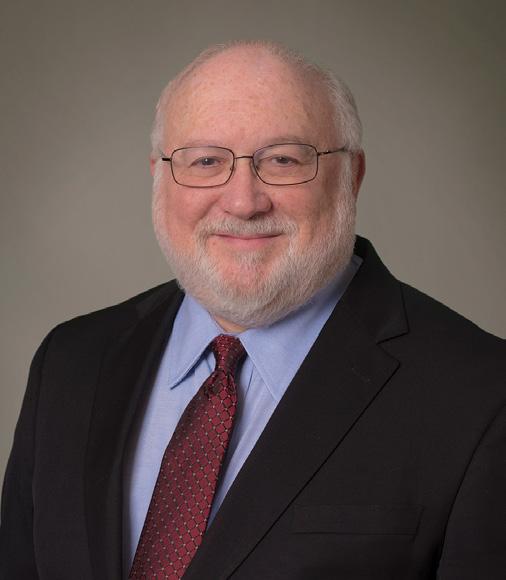 By Randy S. Nelson, CPA, JD
By Randy S. Nelson, CPA, JD
The Corporate Transparency Act (CTA) is a federal law with a filing requirement for almost every corporation, limited liability company (LLC) and limited partnership. The CTA requires that reporting companies file a Beneficial Ownership Information Report (initial report) with the Financial Crimes Enforcement Network (FinCEN), a bureau of the U.S. Treasury. Failure to comply with the CTA’s reporting requirements can result in significant civil and criminal penalties.
Deadlines
The due date for the initial report for your organization depends on when it was formed:
• Jan.1, 2025, for entities already in existence on Dec. 31, 2023
• 90 days after creation if the entity is created between Jan. 1 and Dec. 31, 2024
• 30 days after creation if the entity is created on or after Jan. 1, 2025
Perhaps the most challenging due date occurs when there is a change in any of the information previously reported by the reporting company or a beneficial owner, such as a change of address. An updated report is due 30 days after the change occurs, not 30 days after learning of the change.
When the reporting company becomes aware or has reason to know that an error was made on the initial report or an updated report, a corrected report is due 30 days after that.
“
Failure to comply with the CTA’s reporting requirements can result in significant civil and criminal penalties.
Penalties
There are civil and criminal penalties for willfully failing to timely file a complete and accurate initial report and any required updated or corrected reports. The civil penalty is not more than $500 per day. The criminal penalty is a fine of not more than $10,000, imprisonment for not more than two years, or both.
Purpose of the CTA
The requirement to file the initial report and any required updated or corrected report comes from the CTA passed by bipartisan supermajorities in the United States Congress on Jan. 1, 2021. The purpose of the Act is to fight money laundering and terrorist financing, which are often run through small companies to mask the identities of the owners. Europe has had a similar measure in operation for many years.
Terms
When completing the initial report, keep in mind the following three important terms from the CTA:
The reporting company is the entity required to file the initial report, updated reports and corrected reports with
On Balance March | April 2024 18 wicpa.org

FinCEN. A “domestic reporting company” is created by filing a document with the secretary of state or a similar office. A “foreign reporting company” is created in a foreign country and registered to do business in any state by filing a document with the secretary of state or a similar office.
A beneficial owner is an individual who directly or indirectly owns or controls at least 25% of the reporting company or an individual who directly or indirectly exercises substantial control over the reporting company, even if they do not have an ownership interest in the company — such as a trustee of a trust that owns an interest in the reporting company or senior officers of the reporting company, even if they do not own an interest in it.
Keep in mind that a beneficial owner is always a natural person, never an entity. As a result, when an entity owns an interest in the reporting company, you must keep drilling down to get to the natural persons who will be treated as the beneficial owners. Even after consulting the FinCEN website, you will find there are many unanswered questions when you are examining the facts and circumstances, trying to determine who the beneficial owners of a reporting company are. Because of the potential penalties for failure
to include a beneficial owner, a conservative approach may be the best.
A company applicant is an individual who filed with the secretary of state the document that created the reporting company and an individual who was primarily responsible for directing or controlling the filing. There will be no more than two company applicants.
Information to report
The Beneficial Ownership Information Report filed by the reporting company must include the following information:
• For the reporting company – the full legal name, any trade name or “doing business as” name, the complete current street address of the principal place of business of the company, the state of formation, and the employer identification number.
• For each beneficial owner – the full legal name; date of birth; complete current residential street address; and a photocopy of a nonexpired U.S. passport, a nonexpired state driver’s license, a nonexpired state
19 On Balance March | April 2024 wicpa.org
ID with a picture on it, or if none of those exist, a nonexpired foreign passport.
• For each company applicant as for a beneficial owner (but if the company applicant formed the reporting company in the course of their business, then use the street address of the business). If the reporting company was already in existence on Dec. 31, 2023, then the company applicant’s information is not included in the initial report.
FinCen ID
Alternatively, beneficial owners and company applicants may provide that information directly to FinCEN instead of to the reporting company and obtain a FinCEN ID number, which is then included on the initial report instead of the detailed information. The online application form for a FinCEN ID became available on Jan. 1 at https://fincenid.fincen.gov/landing and requires that the individual first create or sign in to a Login.gov account.

The FinCEN ID may be particularly useful to simplify the reporting process for:
• Beneficial owners who have interests in many reporting companies.
• Beneficial owners and company applicants who do not want to disclose confidential information to the reporting company.
• Company applicants who frequently form reporting companies.
• Reporting companies with many beneficial owners or those with at least one beneficial owner for whom it will be difficult to keep track of updated information for an updated report.
Because the FinCEN ID shifts the responsibility for updating the filed personal information to the beneficial owner, it may also shift the penalties for failing to do that.
Exemptions
There are 23 listed exemptions for entities that are not required to file an initial report. Most exemptions are for entities already subject to disclosure rules, such as publicly traded companies, banks and tax-exempt entities.
The exemption for large operating companies may provide some relief. To be a large operating company, the following three tests must all be met: (1) must have more than 20 full-time employees, (2) must have operating presence at a physical office within the U.S., and (3) must have filed a federal income tax or information return in the U.S. for the previous year, demonstrating more than $5 million in gross receipts or sales, excluding those from sources outside the U.S.
Action items
1. Have reporting companies establish CTA compliance procedures and clearly designate an owner, employee or outside professional who will have responsibility for timely filing the initial report and being the repository to receive the necessary information to file updated reports.
2. Beneficial owners and company applicants should obtain a FinCEN ID.
3. If the reporting company has individuals who are not owners but are senior officers or others with substantial control of the reporting company, have an analysis done of the facts and circumstances to determine if they have to be included as beneficial owners on the initial report or updated reports.
4. Update shareholder agreements, LLC operating agreements, limited partnership agreements, and nonowner employment agreements with employees who have substantial control to require that beneficial owners provide and update the appropriate person with the information needed for filing an accurate and timely initial report and for filing accurate and timely updated reports — or require that they obtain and keep updated a FinCEN ID, and provide that ID to the appropriate person designated by the reporting company.
Randy S. Nelson, CPA, JD, is a shareholder with von Briesen & Roper s.c. in Milwaukee. Contact him at 414-270-2507 or randy.nelson@vonbriesen.com.
On Balance March | April 2024 20 wicpa.org

YOUR PROPERTY TAX PARTNER

The Property Tax Section of von Briesen & Roper, s.c. has extensive experience and is your comprehensive resource for property tax issues. From public to private entities, the Property Tax Section has assisted clients in contesting and defending property tax assessments, chargebacks, tax exemptions, and advising on PILOT agreements and TIF/TID districts. Our creative approach to the most complex matters has positioned us to be your trusted advisor on property tax. The bottom line? We get results.
To learn more about our Tax Section, please contact Dan Welytok at daniel.welytok@vonbriesen.com.


21 On Balance March | April 2024 wicpa.org
Milwaukee • Madison • Neenah • Waukesha • Green Bay • Chicago • Eau Claire
vonbriesen.com/tax

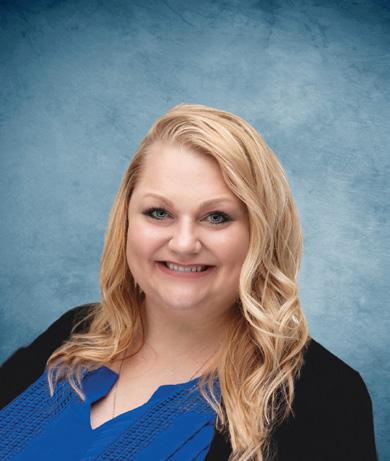
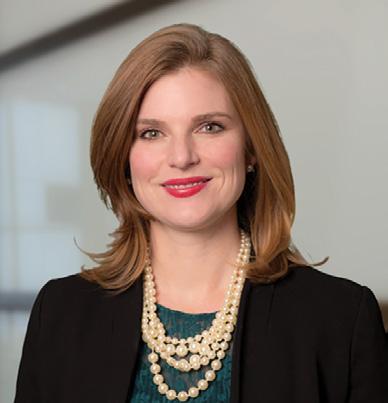
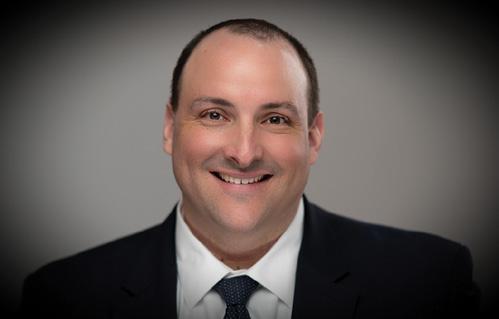

Paul Baniel, CPA, CGMA, has received the CFO of the Year 2023 Lifetime Achievement Award from Insight on Business magazine. He retired in 2023 from his position as vice president of finance and administration for the Green Bay Packers.
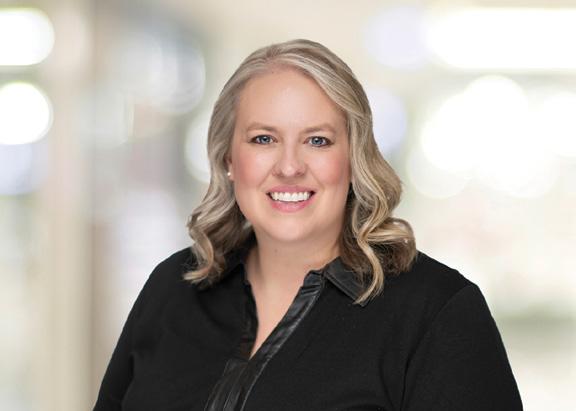

Jamie Barwin, CPA, has joined von Briesen & Roper s.c. in Milwaukee as a shareholder in the Trusts and Estates Section.
Brian Ellenbecker, CFP, EA, CPWA, CIMA, CLTC, has been promoted to partner and financial advisor at Shakespeare Wealth Management in Pewaukee.
Stephanie de Groot, CPA, has been promoted to principal at BDO USA P.A. in Milwaukee.
Paula Haferman, CPA, has been promoted to partner at Hawkins Ash CPAs in Neenah.
Adam Hanson, CPA, has been promoted to partner at SVA Certified Public Accountants in Madison.
Mandy Hein, CPA, received a Top 10 Under 40 award from the Rhinelander Chamber of Commerce and Forward Rhinelander in recognition of her impact on the community.
Cassie Kurek, CPA, has advanced to the role of principal at CliftonLarsonAllen (CLA) in Stevens Point.
Kevin LeMahieu, CPA, CFO at Bank First, has received the CFO of the Year award in the community service category from Insight on Business magazine.

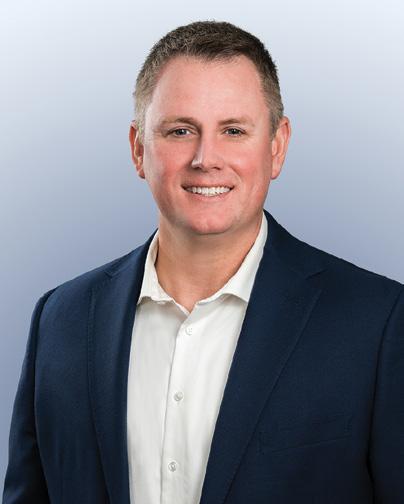
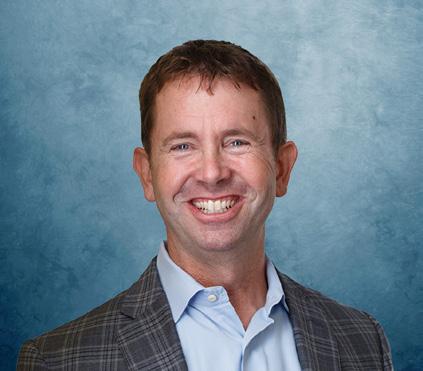
Erika Nowak, CPA, MBA, has been promoted to executive vice president and chief financial officer at Ixonia Bank.
David Schlichting, CPA, PhD, has been reappointed as a CPA representative to the Wisconsin Accounting Examining Board for a second term.
Carver Smith, CPA, managing partner at Wisconsin-based staffing and executive search firm Truity Partners, has been recognized as a Wisconsin Titan 100. The national Titan 100 program recognizes the top 100 CEOs and C-level executives in a region.
Sacia Wheeler, a personal finance and accounting teacher at Vel Phillips Memorial High School in Madison, spoke with Spectrum News 1 about the new half-credit financial literacy requirement for high school students.
On Balance March | April 2024 22 wicpa.org
Want your new job, promotion or award mentioned in Kudos? H Email your announcement and photo in JPG format to mtzinzow@icloud.com. H Vanden Heuvel & Associates CPAs LLC, business specialists in the Greater Madison area, and Vesta, a CPA-led advisory firm formerly known as Huberty, are pleased to announce their merger, effective Jan. 1. FIRM NEWS
kudos
Adam Hanson
David Schlichting
Jamie Barwin
Cassie Kurek
Paul Baniel
Mandy Hein
Stephanie de Groot
Kevin LeMahieu
Brian Ellenbecker
Carver Smith

23 On Balance March | April 2024 wicpa.org Whether you’re looking for a new career or a new employee, the WICPA’s Career Center can help you make the most of your search. Post Job Openings l Upload Your Resume l Apply For Jobs WICPA Career Center Find or post a job today at wicpa.org/CareerCenter.
Engagement timing
Client name Scope of services
8 Critical Elements of an Effective Engagement Letter
Deliverables
CPA firm responsibilities
Client responsibilities
An engagement letter is critical to the success of any CPA. To help protect yourself and your firm, make sure your letter has these eight elements.
By Deborah K. Rood, CPA, MST
One of the best tools a CPA can (and should) consistently employ to help manage their professional liability risk is an engagement letter — a document that defines the contractual obligations between the CPA and their client.
Of course, it can’t just be any engagement letter — it needs to be an effective one. An effective engagement letter identifies the services to be performed, each party’s
responsibilities, and the terms and conditions of the engagement. Ineffective engagement letters are overly brief, absent of key elements, and poorly written.
While most CPAs understand the significance of engagement letters, there’s evidence that supports the need for practice improvement throughout the accounting profession. According to CNA, the endorsed insurer of the AICPA Professional Liability Insurance Program, only 50% of tax
On Balance March | April 2024 24 wicpa.org
&
Termination & withdrawal Billing
fees
claims asserted against CPA firms in the program in 2022 had an engagement letter related to the underlying service. For consulting services claims in the same year, only 68% had an engagement letter (better but not where it should be).
To help you protect yourself and mitigate risk, these eight critical elements should be included in every engagement letter.
Client name
The first critical element may seem obvious — the identities of the parties involved in the engagement. However, it’s important to remember that identifying all engaged parties provides a defense to third parties asserting that the engagement was performed for their benefit.
In your engagement letter, ensure that the client’s proper legal name is used, including subsidiaries and other related parties (if services are to be delivered to those parties). Within the body of the letter, consider identifying a specific point of contact you’ll take direction from and to whom questions and requests should be directed. Identifying a singular client point of contact has proven to be beneficial, particularly when business owners are in conflict with one another or if a request is made of you by an owner who’s not the primary contact.
Scope of services
Often, disputes arise when the client’s understanding of the services to be rendered differs from yours. To reduce the likelihood of an expectation gap and avoid misunderstanding or misinterpretation, your engagement letter should clearly delineate the services to be provided with sufficient detail.
Although such detail may be fairly straightforward for an attest or tax compliance engagement, it’s commonly less so for consulting and tax services other than tax compliance. Work with your client to articulate the specific scope of the service they require, and include such details in your engagement letter.
For example, “Consult regarding the individual income tax implications of the current year sale, installment sale, or likekind exchange of the real property located at 123 Main Street, City, State, based upon a sale price of $X,” is preferable to a brief summary. For instance, “Minimize the tax on the sale of the rental property” is far too brief and may raise questions regarding which rental property or if tax was truly minimized if another planning strategy resulted in less tax.
After the scope of services is drafted, consider asking a colleague or an impartial party to read your engagement letter to help evaluate whether it’s sufficiently specific.
CPA firm responsibilities
Your CPA firm’s responsibilities are generally limited to performing the services identified in the engagement letter

in accordance with the professional standards outlined in the letter. Why include relevant professional standards? Doing so helps identify the specific duty of care to which you’ll be held in the event of a dispute, and it provides a defense to the plaintiff’s counsel suggesting that a different standard applies.
This section of your engagement letter should also include limitations of the engagement, which, for most services, includes no responsibility to detect theft, fraud or weaknesses in your client’s internal controls.
Client responsibilities
Experience demonstrates that clients who deflect their responsibilities related to your services are quick to blame you if problems arise. Therefore, clearly defining their responsibilities is an important element of every engagement letter for any service. Client responsibilities may include, but are not limited to:
• Providing requested information and responding to inquiries in a timely manner.
• Maintaining a system of internal controls.
• Making management decisions.
• Accepting responsibility for the results of your firm’s services.
• Providing certain representations when requested.
25 On Balance March | April 2024 wicpa.org
1
3
2
4

Deliverables
The deliverable is the result or work product of the service you’ve been engaged to perform for your client (e.g., an audit report, a tax return, or a written memo summarizing recommended process improvements). Written deliverables are preferred to oral ones since they provide evidence of the work you’re expected to perform. However, if oral advice is provided, the deliverable could be an email to your client summarizing the oral advice you provided. Of course, like the scope of services, it’s important to be specific in your engagement letter. Be sure to:
• Describe the anticipated deliverable and its format.
• Identify tax form names and numbers to be prepared (if applicable).
• Attach a template of the deliverable (if additional clarity is needed).
• Note any restrictions or limitations on the use and distribution of the deliverable. With the exception of
“ What’s important to take away is that engagement letters help protect you and your firm from disputes and offer clients clarity of what they can expect while working with you.
attest engagements, most CPA firm deliverables are solely for client use, not for third parties, which should be clearly stated in the engagement letter.
Identify when services will begin and any contingencies, such as receipt of client documentation, engagement letter or retainer, that may affect the start date. This clarification helps reduce the risk of a misunderstanding with your client
The same is true for the service’s end date. Identify when the services are expected to conclude, whether it’s a milestone, such as delivery of the engagement work product, or a specific date or length of time. This clarification helps determine when the statute of limitations begins, which can aid in your defense in the event of a professional liability claim.
Termination and withdrawal
While nobody likes to contemplate ending an engagement before work is complete, it can and does occur. You may wish to terminate an engagement if your client insists that you take an unreasonable tax position or if your client hasn’t paid you for your services. So, make sure to include a statement in your engagement letter that notes you may withdraw from the engagement at any time without completing the services. If you feel providing examples is necessary, be sure to include the phrase “including but not limited to,” to convey that other circumstances may result in termination or withdrawal.
Billing and fees
Including the fees or fee estimate in your engagement letter helps clarify, in writing, the anticipated cost to your client. This specificity increases the likelihood of being paid and reduces the likelihood of a fee dispute. You should also
On Balance March | April 2024 26 wicpa.org
8
7
5
identify contingencies that may result in fees that differ from the estimate provided.
Simply put, engagement letters often serve as written records of discussions or mutual understandings that’ve already transpired. What’s important to take away is that engagement letters help protect you and your firm from disputes and offer clients clarity of what they can expect while working with you. If a client balks at signing an engagement letter, consider drawing a parallel to their business or everyday life. Would an architect start designing a home without an understanding of what the homeowner wanted? Would an individual turn a car over to a mechanic without first approving what is to be repaired and at what cost? Obviously not. The same should be true for CPAs — engagement letters should be the foundation of our business.
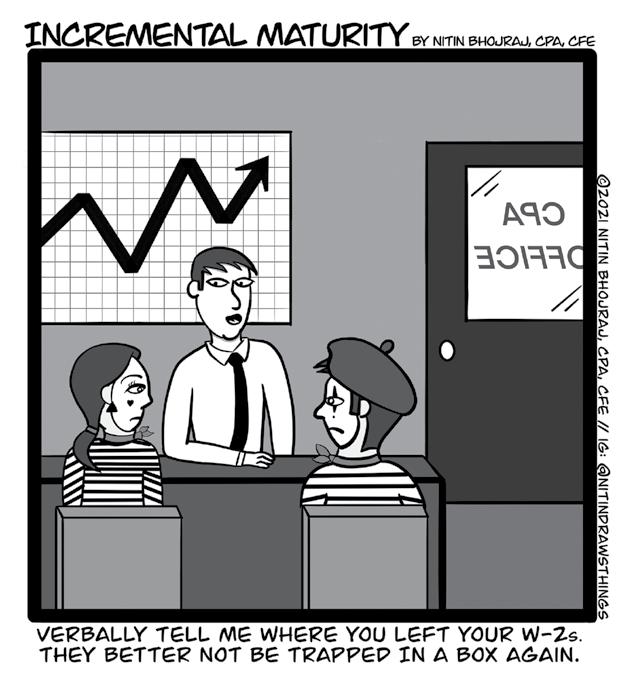



27 On Balance March | April 2024 wicpa.org
Deborah K. Rood, CPA, MST, is a risk control consulting director for CNA Insurance in Chicago.
Reprinted from Insight magazine, a publication of the Illinois CPA Society. Used with permission.
WI business
for Accounting Firms & Accounting Executives Hire top talent for Bookkeeping, Accounting, Tax, Audit, Payroll, Backoffice! OFFSHORE STAFFING SOLUTIONS globalskillbench.com/wicpa 25 years of offshore staffing experience info@globalskillbench.com 414-877-7218 Save 75 % on FTE costs Hire young, experienced professionals Faster turnaround with client deliverables Save time with hiring, focus on business growth
Founded
by and for CPAs
Reaching Next-Gen Talent With High School Visits
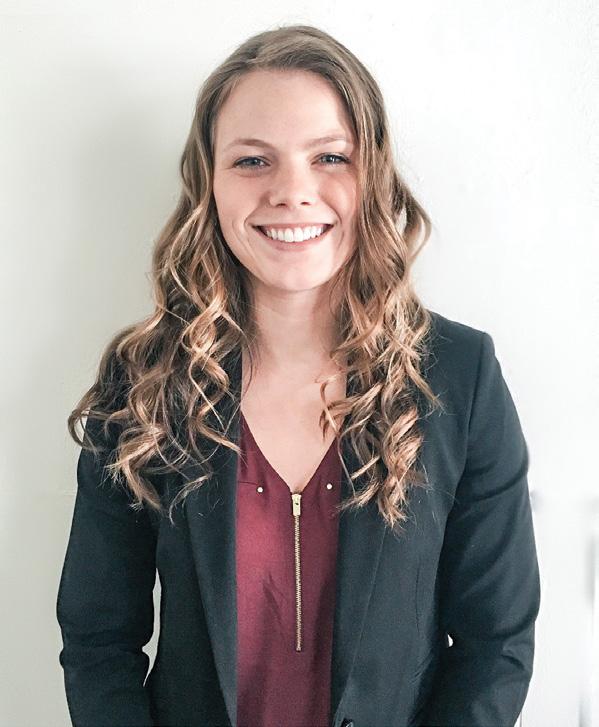 By Victoria Spencer
By Victoria Spencer
The accounting industry is undergoing rapid transformations in response to technological advancements, changing regulations and evolving business landscapes. To help ensure a steady influx of talented professionals, it’s crucial for public accounting firms to actively engage with the next generation early on.
We believe Wipfli has found a solution by interacting with local high schools through hosting class visits at our firms. These visits play a pivotal role in bridging the gap between early academia and the real-world demands of the accounting industry. In this article, we share our experiences in the interest of the profession as a whole.
The benefits of hosting school visits
Hosting school visits helps firms foster relationships with local high schools, identify and nurture young talent, and create a pathway for students to pursue accounting-related degrees and certifications. Establishing these connections early on can lead to internships, scholarships and mentorship programs, making a seamless transition from education to employment.
One of the primary reasons for hosting high school visits is to provide students with firsthand experience of the profession. Traditional classroom settings may not fully capture the dynamic nature of accounting, but exposing high school students to real workplace environments can ignite their interest and passion for the field. Witnessing professionals in action and engaging in interactive sessions can make the abstract concepts they learn in class more tangible and relevant.
Many high school students are also uncertain about their career paths and lack awareness of the diverse opportunities
“
To help ensure a steady influx of talented professionals, it’s crucial for public accounting firms to actively engage with the next generation early on.
within the accounting industry. Visiting firms allows students to explore various roles, from tax and audit to forensic accounting and advisory services. And exposure to the breadth of the profession enables students to make informed decisions about their educational paths and future careers.
Changing perceptions
When people think of accounting, they think of numbers. But accounting isn’t just about crunching numbers — it requires strong communication, digital fluency, critical thinking and problem-solving skills. High school student visits allow them to develop these essential skills by interacting with professionals in a real-world setting. Activities such as open networking time, mock-client interactions, discussions around technology use, and educational presentations can help students cultivate skills necessary for success in the accounting industry.
During these visits, students also hear firsthand from associates in a panel setting about internship programs, culture, variances in career trajectory and more.
Making the most of your visits
When we host visits, Wipfli sends a local partner to share more about Wipfli’s history and the future of the accounting
On Balance March | April 2024 28 wicpa.org
{ Human Resources | Recruiting }

profession. We use breakout groups with a career-fair style industry rotation so that students can see our variety of services and what it’s like to work in those areas. And we always include an office tour and open networking.
Here are a few quotes from one of our recent high school visits that show how impactful a visit to a public accounting firm can be:
• As a senior in high school, [I feel that] visiting Wipfli was an enriching experience, and I am appreciative of the time, insights and warm hospitality extended to us
by the Wipfli staff. I enjoyed gaining an understanding of the expertise of the Wipfli team and the diverse range of positions and projects that are undertaken within the company. Learning about the inner workings of a CPA firm and the various intersections of accounting with other industries — such as computer science — has ignited my enthusiasm to pursue a future in this field. I am now more informed about the many opportunities and possibilities in the business world, and I am eager to explore this path further!
29 On Balance March | April 2024 wicpa.org
• I very much enjoyed the field trip. I am glad I got to learn about all of the different roles and types of accountants that come into play at Wipfli. My favorite topic was definitely the audit accountants and how they look through other companies’ financial statements and inventory to make sure everything they have is documented.
• The field trip to Wipfli has helped me better understand what it looks like to be an accountant. I learned more about different fields within accounting, including auditing, tax accounting and consulting. I learned about internships and the CPA Exam and how important they are. This field trip helps reaffirm the importance of networking, so I plan to make my own LinkedIn account. It was very interesting to learn more about auditing and how people get to travel to different Wipfli locations across the U.S. and abroad. I learned more about 1040s and the difference between a 1099 and a W-2. I enjoyed listening to the different presentations!
The future of talent
School visit initiatives not only benefit the students but can also drive your firm’s continued success and the sustainability of the accounting industry. Actively engaging with local high schools can contribute to your firm’s corporate social responsibility efforts by demonstrating your commitment to education and community development — something prospective employees say they are looking for.
Hosting high school visits can also act as a strategic investment in the industry’s future. By providing experiential learning opportunities, fostering career exploration, developing skills, and engaging in community outreach, your public accounting firm can play a crucial role in shaping the next generation of professionals.
If you want to learn more about connecting with high schools and hosting high school visits, contact the author, whose contact information appears below.
Victoria Spencer is a senior talent acquisition specialist at Wipfli in Milwaukee. Contact her at 414-290-8056 or vspencer@wipfli.com.

On Balance March | April 2024 30 wicpa.org
{ Human Resources | Recruiting }
Perspective changes everything. Bring your why. Come work with us. wipfli.com/careers

Elena Aviles
Jesse Becker
Keystone Tax LLC
Madison Behlke
Menomonee Falls High School
Kalea Biddick
Mineral Point High School
Rori Bossert
Mineral Point High School
Jacob M. Boyer
Baird Private Wealth Management
Aaron Brown
UW–Platteville
Veena L. Brown
UW–Milwaukee Lubar Business School
Braedyn Budde
UW–Platteville
Erica J. Buechel
BDO USA P.C.
MacClain Busser
Mineral Point High School
Joseph D. Byrne
Jack Ceplina
Menomonee Falls High School
Poonam Chawhan
Brooke Chromy
Carter W. Cousland
UW–Milwaukee Lubar Business School
Michael Croasdaile
Elena Curtis
Baker Tilly
Patricia Davies
Colton Dochnahl
Mineral Point High School
Jonathan Doria
Denise Durkin
Williams Bay High School
Clayton K. Fields
Fields Tax and Accounting LLC
Grady Finley
Mineral Point High School
Tieranny N. Frassetto
Deloitte & Touche LLP
Owen Friedow
UW–Platteville
Nicole A. Gamroth
SVA Certified Public Accountants S.C.
Caiden Garcia
Mineral Point High School
Jake Gathje
UW–Platteville
Maisie M. Gelhar
UW–Milwaukee Lubar Business School
Julio Gonzalez
Cara Greene
Madison Grulkowski
Franklin High School
Justin Guagliardo
Dave A. Haas
De Forest High School
Michael Hanke
Marshfield High School
Elizabeth Hedges
Madison Community Foundation
Alexis Hentrich
Mineral Point High School
Anthony Hoeflich Jr.
UW–Milwaukee Lubar Business School
Roseanna M. Hoffman
Hoffman CPA
AnnMaree Hooper
Noelle Hurula
UW–Platteville
Jennifer Jacobs
Wilson Kerschner
Menomonee Falls High School
Hasaan A. Khan
Cameron Klein
UW–Whitewater
Sabrina M. Kloehn
Goodwill Industries of North Central Wisconsin Inc.
Reed Kluesner
UW–Platteville
Ellie Klun
Menomonee Falls High School
Jonathan Kollen
Devyn Korish
Hawkins Ash CPAs LLP
Zachary D. Kosidowski
Erika Kott
Full Spectrum Solutions LLC
Stephanie Kurtzweil Mosinee High School
Shawn M. Lanser
Landon R. Lemke Concordia University
Erica Rose Ludlum
Mineral Point High School
Pawandeep K. Mann
Jenesis Marquez
UW–Milwaukee Lubar Business School
Valerie Martin
Mineral Point High School
Justin R. Muth
Michael L. Nehs
Quangdat Nguyen
UW–Milwaukee Lubar Business School
Jennifer L. O’Leary
Northwestern Mutual
Jayda Padulla
UW–Platteville
Matthew S. Pappas
Max P. Paul
Grant Thornton LLP
Merisa Paynter
Mineral Point High School
Jaedyn Paz
Menomonee Falls High School
Natalie Prudhomme
Menomonee Falls High School
Garrett L. Pynckel
Deloitte & Touche LLP
Ryley Reichling
Mineral Point High School
Nathan Reynebeau
Gardner Denver
Alex Ross
Mineral Point High School
Hanna Rott
McFarland High School
Abbey Rowe
UW–Platteville
Charles Rutter
Franklin High School
Joseph Sadowski
Menomonee Falls High School
Harman Saini
Kapur and Associates
Gretchen Schmook
Michael Schrank Jr.
Slinger High School
Hudson Schroeder
Mineral Point High School
Kylie B. Schwingle
Nordic Consulting Inc.
Beth Senger
Chortek LLP
Jalen Sims
UW–Platteville
Steven D. Sobocinski
Alecia Swenson
BDO USA LLP
Taylor Tousey
Yeye S. Trawicki
CliftonLarsonAllen LLP
Emma Tuescher
UW–Platteville
Zachary J. Walsh
Violette Walter
Dale Yoo
Menomonee Falls High School
Aaron K. Young
Spectrum Tax Wealth Advisors
Jesus Zamudio
UW–Milwaukee Lubar Business School
31 On Balance March | April 2024 wicpa.org
newest
December 1, 2023 – January 31, 2024
Welcome new members! Get to know the
members of the WICPA.


5 Commonsense Steps to Successful Networking


On Balance March | April 2024 32 { Professional Development | Networking }
By Daniel Kochka, CPA, CFE, MBA
As business professionals in an increasingly competitive field, the role of the CPA is ever expanding. Networking might be neither a traditional nor instinctual skill, but it is vital for seeking new business and expanding your network.
If the thought of networking is uncomfortable, rest easy, because the best way to grow your client base or business network is also the easiest. You don’t have to take a course in selling or learn a series of pressure tactics. The most critical component of networking is connection. Every CPA has multiple relationships in their daily lives and, through these connections, can build significantly larger networks.
Networking can be easy, comfortable and even enjoyable when you follow these five steps:
1. Know yourself
It is imperative to understand your style. Taking time to reflect on who you are, how you relate to others, and what type of socializing you are most comfortable with will go a long way toward building a thriving network. Answer questions such as Am I more formal or casual? Is it easier for me to strike up a conversation in a small-group setting or circulate in a large-group event? Your answers will help you facilitate opportunities to network effectively. Knowing your style and following your interests will lead you to like-minded individuals with whom you can connect easily — perhaps through sports, community or volunteerism.
2. Know your target
Once you know how you are most comfortable making connections, you will want to think about groups to target. Clarity about the clients you seek or the contacts you want to make will help you plan and use your networking time effectively. You can begin in your local area, and expertise in a particular industry is undoubtedly an advantage. Consider joining local organizations, including chapters of national organizations representing industries in which you specialize. Participation can include speaking at meetings and conferences to share your expertise in financial matters of importance to those in attendance. Joining — and more importantly, actively participating in — organizations and lending your services in support of their mission and goals help build the most robust business relationships: those that are mutually beneficial.
3. Prepare
Once you have identified a potential target, learning as much as you can about them before making contact will foster
“
Networking might be neither a traditional nor instinctual skill, but it is vital for seeking new business and expanding your network.
their confidence and yours. Your preparation and understanding of how a prospect’s business and industry function and the significant challenges and requirements they face will allow them to recognize your value. Randomly contacting people is rarely productive; however, being prepared will help you move your targets from prospects to clients.
4. Be authentic
Being genuine and concentrating on how you can solve a prospect’s challenges will not only prove productive but will also be more gratifying. Focusing on helping others by providing dedicated quality service instead of thinking about networking as a sales initiative will help you develop solid professional relationships.
5. Follow up and follow through
Consistent follow-up demonstrates your integrity. If you have offered to provide information or make an introduction, be sure to do it as expediently as possible. It takes time and intentional action to build relationships and make them flourish. Seeds planted today can have far-reaching benefits in the future.
We all network daily, intentionally or not. However, when you consciously develop new relationships, you’ll see the most progress. Reap the rewards when you take the initiative, put yourself forward with integrity and authenticity, communicate effectively, and follow up consistently. In our increasingly technology-driven world, never underestimate the power of human connection.
33 On Balance March | April 2024 wicpa.org
Kochka, CPA, CFE, MBA, is a manager at HBK CPAs & Consultants. Contact him at dkochka@hbkcpa.com.
from New Jersey CPA magazine and used with permission of the New Jersey Society of CPAs.
Daniel
Reprinted

memorials
David M. Hansen, CPA (1986–2023)
David M. Hansen, CPA, of Neenah, passed away on Saturday, Dec. 30, 2023, from cancer. He was 37 years old. Hansen, who was born in Milwaukee, graduated from Appleton West High School in 2004. He then studied accounting at the University of Wisconsin–Madison, graduating with a Master of Accountancy degree in 2010. In 2011, Hansen took the CPA Exam and became certified and licensed as a CPA. He worked for Grant Thornton, advancing to senior associate before moving on to his next and last employer, U.S. Venture, where he served as accounting manager. Hansen is survived by his loving wife, Kim Kneepkens; his parents and in-laws; two brothers; three nieces; four nephews; and many other relatives and friends.
Frederick L. Licau, CPA (1942–2024)
Frederick (Fred) L. Licau, CPA, of Hales Corners passed away on Wednesday, Jan. 17, at the age of 82. Licau graduated from Pulaski High School in Milwaukee and, in 1964, from the University of Wisconsin–Milwaukee, where he earned a bachelor’s degree in business administration with a major in accounting. He received his CPA license in 1967 and worked 40 years in public accounting, primarily for Conley McDonald & Co. (eventually becoming managing partner) and later as a senior partner with Baker Tilly Virchow Krause. He held many committee positions as a member of the American Institute of Certified Public Accountants and the Wisconsin Institute of Certified Public Accountants and also was a past president of the Wisconsin Venture Network. He was very active in civic affairs, serving as a trustee and president of the Village of Hales Corners; chairman of its Police and Fire Commission; and a member of the Intergovernmental Cooperation Council, the Executive Council, and the Office of Emergency Government. Licau also was a past member of the Brookfield Rotary Club, past president of the Hales Corners Lions Club, and a director and treasurer of the Great Lakes Sport Fishermen’s Club. He is survived by his daughter, Julie; sons, Ken and Dale; and many other loving relatives and friends.

The Villages, Florida, passed away on Dec. 29, 2023. Mickelson was born and raised in Eau Claire and was a 1966 graduate of Eau Claire Memorial High School. He went on to earn an accounting degree from the UW–Madison School of Business in 1971 and became licensed as a CPA in 1975. He spent his career working for the State of Wisconsin as deputy state auditor with the Legislative Audit Bureau. Mickelson was an active member of the WICPA, serving on numerous committees, including the Finance, Small Business Assistance, and Accounting Careers committees as well as the Executive Committee of the Board of Directors and the Board of Directors Nominations Committee. He held the prestigious position of WICPA board chair in 2001–2002. Mickelson also volunteered for many years as an EMT with the Middleton Emergency Medical Service and was active in the Boy Scout program with his son, Brian. He loved sports and was an avid Green Bay Packer and Wisconsin Badgers fan. Mickelson is survived by his son, Brian, and a daughter, Amy McCarver; four grandchildren; two brothers, Dave and Tim; a sister, Jeanne Storm; his partner of more than 25 years, Becky Lampinen; many nieces and nephews; other relatives and many friends.
On Balance March | April 2024 34 wicpa.org

Paul E. Piotrowski, CPA (1964–2024)
Paul E. Piotrowski, CPA, passed away unexpectedly on Monday, Jan. 15. He was 59 years of age. Piotrowski graduated from St. Thomas More High School in Milwaukee in 1982 and earned a Bachelor of Business Administration degree in accounting from the University of Wisconsin–Milwaukee. He was licensed as a CPA in 1989 and worked for Hader Industries Inc. in New Berlin for 30 years, serving as corporate controller and most recently as chief financial officer. He had been a WICPA member for 33 years. Piotrowski is survived by his loving wife, Melanie; a daughter; a brother and two sisters; both parents; many nieces and nephews; and other relatives and friends.
Michael Strittmater, CPA (1944–2023)
Michael Strittmater, CPA, a lifetime member of the WICPA, passed away Tuesday, Dec. 19, 2023, at his home in Onalaska. He was 79. Strittmater was born in La Crosse and graduated from Aquinas High School; then he attended the University of Wisconsin–Madison, where he earned a degree in accounting. He passed the CPA Exam in 1970 and worked in public accounting for four years. He then worked as a corporate management accountant and corporate officer for 36 years for several La Crosse firms. Strittmater is survived by his spouse, their daughter and son, and four grandchildren. He is also survived by one brother. He was preceded in death by his parents.
Judyth Swingen, CPA, PhD (1945–2024)
Judyth Swingen, CPA, PhD, aged 78, passed away Sunday, Feb. 4, in Little Rock, Arkansas. Swingen earned both her Bachelor of Science and Master of Science degrees in music education at the University of Wisconsin–Platteville, in 1966 and 1968 respectively. In 1971 she began her second career in accounting and taxation by earning bachelor’s and master’s degrees in accounting from UW–Whitewater. Swingen became a licensed CPA in Wisconsin in 1980, and in 1984 she earned her PhD in accounting and taxation from UW–Madison. She taught for more than 30 years as a college professor at universities in Wisconsin, Iowa,
New York, Florida and Arkansas. However, she continued to exercise her musical muscles by participating in ensembles in the Little Rock area and playing the euphonium and trombone with the band members. She also enjoyed participating in the annual Madison Early Music Festival in Wisconsin. Swingen is survived by her husband, Richard; a sister and brother; and many other relatives and friends.
Richard Wettstein, CPA, CFE (1929–2023)
Richard Wettstein, CPA, CFE, passed away on Wednesday, Nov. 29, 2023. The 94-year-old Wettstein had been a member of the WICPA for 64 years. His involvement included working with the Personal Financial Planning Network in the 1990s. Wettstein was licensed as a CPA in 1959 and worked in public accounting for 63 years, 20 of which were in his own firm. He and his late wife, Jerrie, shared many adventures together in their 70-year marriage. He is survived by two daughters, two sons, five grandchildren and 10 greatgrandchildren. His wife and two brothers preceded him in death.
Lee Whitney, CPA (1934–2023)
Lee Whitney, CPA, age 89, passed away on Monday, Dec. 11, 2023. Whitney graduated from Green Bay West High School in 1952 and, shortly after, joined the United States Air Force. He served from 1953 through 1957, including a one-year tour in Korea, where he was a radio operator in the Cryptographic Service for the 5th Air Force Advanced Headquarters. After his service, Whitney studied accounting at Badger Business College. After graduation in 1961, he took an accounting job in Manitowoc for the firm of Kugler Reichard and Orvis as a junior accountant. In 1967, he obtained his CPA license, and in 1970, he became a partner in the accounting firm — which then became Reichard, Whitney & Kroening. He continued to work as a senior partner until his retirement in 1998. Even though Whitney was “retired,” he continued to work on a part-time basis until 2015. He is survived by two sons, two daughters, five grandchildren, a great-grandchild, and other relatives and friends.

If you are aware of a member obituary and believe it should be included in Memorials, please send a copy of the obituary or contact Marcia Tillett-Zinzow at mtzinzow@icloud.com.
35 On Balance March | April 2024 wicpa.org

On Balance March | April 2024 36 wicpa.org { Employee Relations | DEI }
The Ethics of DEI: Cultivating a Positive Workplace
Committing to diversity, equity and inclusion initiatives is more than an ethical consideration — it leads to stronger organizations and workplace cultures.
By Elizabeth Pittelkow Kittner, CPA, CGMA, CITP
While there continues to be significant ethical considerations about diversity, equity and inclusion (DEI) in the workplace — and in society as a whole — the benefits of these initiatives are clear. When organizations spend time focusing on DEI, they create more positive and collaborative environments for themselves and others. The merits of effective DEI initiatives will lead to better decision-making, more innovation, improved employee satisfaction, enhanced brand reputation, and positive social and community impact.
The foundation of DEI relates to the ethical principle of upholding the equity of every individual’s contributions and their right to equal respect. The intent is to preserve the value of each individual and identify the right opportunities for personal and professional growth.
Let’s examine the three components of DEI:
• When organizations value diversity, they acknowledge the dignity and unique contributions each person brings based on their experience, background, race, gender and other characteristics. It is important for your organization to assess and determine if it has the diversity needed to make it stronger in decisionmaking and more representative of the markets it serves. Your organization should also examine whether it is effectively contributing to DEI in its interactions with others.
• Regarding equity, your organization should ensure its people have equal access to professional
“ When organizations spend time focusing on DEI, they create more positive and collaborative environments for themselves and others.
development, leadership experiences and career advancement opportunities. Each person in your organization will likely take a different journey to learning, development and promotion. Therefore, your organization should consciously engage in individual discussions to outline what each person’s journey looks like.
• Inclusion is the element of DEI that creates an environment for both diversity and equity to succeed. Your organization should ensure your people feel valued, heard and respected. Your people should be able to contribute their perspectives, experiences and talents openly and with encouragement — after all, inclusion aligns with values of dignity, autonomy and equality.
37 On Balance March | April 2024 wicpa.org

To champion a successful DEI environment, your organization should consider these ethical guidelines:
Engage the leadership team. Ethical leadership teams are accountable for talking about DEI efforts, working toward a welcoming and productive culture, and ensuring policies and behaviors align with corporate values. Your leadership team should be open and clear about its DEI goals and consistently report on the progress toward those goals to help support action throughout the organization.
Offer continuous education. Keeping a persistent focus on DEI includes ongoing education and providing opportunities to ask questions. An all-hands meeting or a diversity panel dedicated to this topic can be helpful in creating this type of environment. Consider asking your own people to lead these sessions to bring personal storytelling to the education, or ask external speakers to help facilitate discussions.
Build cultural competence. Cultural competence exists when individuals can effectively collaborate with people from different backgrounds; it promotes the idea of seeking to understand others and respecting their views, even if you
“
A healthy organization starts with healthy people.
may not agree with them. Employee resource groups may be helpful in achieving this goal since they can provide chances for people to share their perspectives and offer awareness regarding cultural representations.
Promote positivity and well-being. Organizations that care about their people look out for their overall physical and mental well-being. Initiatives regarding mental health (like employee assistance programs), professional development, and charitable work show an ethical commitment to the people working for you and the communities you serve. A healthy organization starts with healthy people.
Survey your people. Organizations that care about providing an ethical and positive environment that
On Balance March | April 2024 38 wicpa.org
{ Employee Relations | DEI }

prioritizes DEI also provide ways for people to give feedback, including anonymous feedback. Feedback may present your organization with key insights into what it is doing well and what it can be doing differently to promote the culture it wants. You may also consider facilitating a “crazy ideas board,” where people can submit ideas to your leadership team for consideration regarding product offerings, culture events, charitable work and more.
Individual employees play an instrumental role in promoting DEI throughout an organization. As an employee, consider these ethical guidelines:
Develop self-awareness. Identify what biases you may have in your own beliefs and assumptions — knowing biases is the first step to addressing them. Consider how you can show up in interactions to increase your open-mindedness.
Learn about others. Be brave and respectful in asking people about their backgrounds and experiences. Research different groups and learn about them, including their histories and customs, and offer to teach and talk about your own culture.
“ To cultivate a positive and inclusive culture, leaders should commit to self-awareness, learning and action through discussion and teaching.
Practice generous assumptions. When someone’s behavior does not make sense, give them the benefit of the doubt, and ask them directly about it. It is fair for you to tell them how their behavior makes you feel and the impact it has on the team. Remember, someone’s behavior may be due to their background (e.g., someone who is neurodiverse may approach a situation differently than someone who is neurotypical) or social preference (e.g., extroversion or
Participate in DEI initiatives. The more people engage in an organization’s DEI initiatives, the more DEI will become ingrained in the culture. Encourage your organization to keep focusing on DEI and working to make the culture better.
Serve as a mentor. Find someone in your organization to mentor. You can advocate for their professional development and advancement by getting to know them and understanding their unique skills and aspirations. You can also empower them to have a voice in their career.
Ethical leadership and an evaluative mindset by individuals and organizations significantly contribute to the success of DEI initiatives. To cultivate a positive and inclusive culture, leaders should commit to self-awareness, learning and action through discussion and teaching. For yourself, think about what you can do personally and organizationally to take the next steps. Remember, an ongoing and deliberate commitment to DEI creates and sustains an inclusive and equitable workplace that seeks, welcomes and celebrates diversity.
Elizabeth Pittelkow Kittner, CPA, CGMA, CITP, is vice president of finance and HR at GigaOm, a technology-focused analyst firm and media company.
Reprinted from Insight magazine, a publication of the Illinois CPA Society. Used with
39 On Balance March | April 2024 wicpa.org
permission.

Key Employee Handbook Policies for 2024
On Balance March | April 2024 40 wicpa.org
{ Practice Management | Employee handbooks }
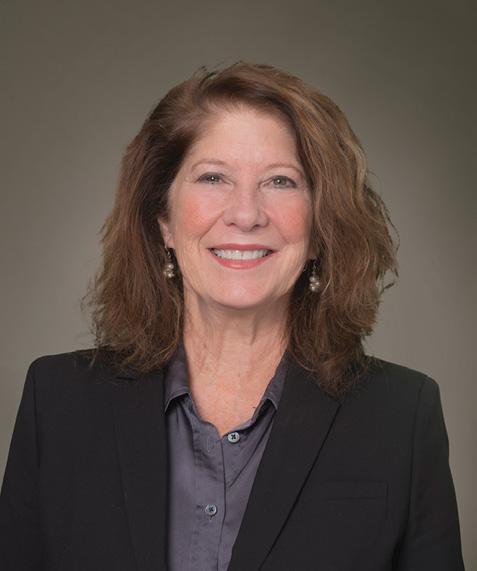 By Jill Pedigo Hall, JD and
By Jill Pedigo Hall, JD and
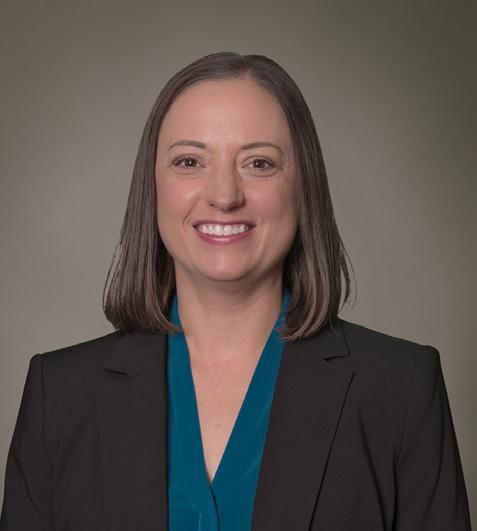 Erica A. Storm, JD
Erica A. Storm, JD

An employee handbook may be one of the most important documents your organization has in place. Handbooks can define overall workplace culture, spell out guidelines for employees and supervisors, and provide legal protection to the company. An effective handbook can also create efficiency by providing a centralized place for supervisors and employees to find answers to common questions.

Employee handbook policies should be drafted with care and kept up to date. Inaccurate or unclear wording and outdated policies can create legal exposure.
Using generic policies can be tempting from a cost-saving perspective, but policies should be customized to fit your workplace. Including policies on legal requirements that do not apply to your organization can create unintended consequences by imposing obligations that you could have otherwise avoided.
General policies
A best practice is to start the handbook with a strong, up-to-date equal employment opportunity policy, making it clear that you will not tolerate harassment or discrimination and demonstrating your commitment to equal employment opportunity. Follow that with policies against illegal harassment, discrimination and retaliation to show that avoidance of such conduct is a top priority.
Harassment and retaliation claims are extremely common, but a strong anti-harassment policy can act as a deterrent, help employees recognize harassment, and encourage employees to report problems when they arise. Having an open-door policy or complaint/grievance policy can also ensure that any potential problems are dealt with quickly.
Equal opportunity policies can be paired with policies regarding your obligations to provide accommodations regarding disability, sincerely held religious beliefs, and pregnancy under the federal Pregnant Workers Fairness Act.
“
An employee handbook may be one of the most important documents your organization has in place.
These policies can detail a communication process so that employees are aware of their responsibility to request accommodations and indicate what information — including medical information — may be required.
This section can also include an important statement that employment with the organization is at will, and employment can be terminated for any reason or no reason at all, as long as the reason is nondiscriminatory.
Wage and hour policies
Increasing wage and hour litigation and government enforcement of wage matters makes inclusion of wage and hour policies a vital component. Necessary policies include a simple policy identifying the employer’s workweek, payroll process, permitted payroll deductions, overtime, breaks, safe harbor around errors, and timekeeping procedures. If you have employees who travel, you may wish to include a traveltime policy.
41 On Balance March | April 2024 wicpa.org


“
The overtime policy should indicate the payroll period upon which overtime is based (usually 40 hours per week) and that overtime pay is based on the employee’s “regular rate” of pay, which is a legally defined term, not just the employee’s standard wage rate. It is advisable to require employees to get advance approval for overtime work and note they will be subject to discipline for not following the policy.
Discretionary and nondiscretionary bonuses are frequently the subject of wage and hour unpaid overtime claims. It is therefore important to detail in a policy who is eligible for a bonus, how it is earned, and when it will be paid out, among other factors. Bonuses must meet specific requirements to be considered discretionary, and nondiscretionary bonuses must be included in the calculation of overtime pay.
To avoid liability for wage and hour claims, it is not enough to have timekeeping policies — they must also be followed. Accurate time records are important to ensure that nonexempt employees are paid for all compensable time and
To avoid liability for wage and hour claims, it is not enough to have timekeeping policies — they must also be followed.
that overtime is paid correctly. Employees’ work records should match their hours worked, and supervisors should be trained to monitor employee compliance with the policy.
Daily conduct policies
Daily conduct policies can communicate expectations for employees’ day-to-day behavior in several different areas. Dress code policies can be included but should be crafted to avoid impacting protected groups. Social media and workplace communication policies in particular should be reviewed to make sure they do not impinge on employee rights to engage in protected activity under the National Labor Relations Act.
In light of the increase in remote work, setting standards around remote work can reduce liability exposure. A robust
On Balance March | April 2024 42 wicpa.org
{ Practice Management | Employee handbooks }
policy is recommended that outlines which employees are eligible to work remotely, how workers will track their work time, responsibility for equipment, confidentiality, workers compensation considerations, and how performance will be monitored.
Daily conduct policies can also document general standards for conduct and discipline, attendance, a code of ethics, prohibitions on conflicts of interest and nepotism, and the organization’s process for employee performance reviews and fielding of complaints.
Health and safety policies
Which health and safety policies are appropriate for a particular workplace will depend on the nature of that workplace. However, all employers should consider basic safety guidelines and workplace accident reporting policies.
A workplace violence policy puts employees on notice that there is zero tolerance for threats and violence in the workplace, identifies what conduct is prohibited, and encourages employees to notify the employer of any threats. A policy prohibiting weapons (including concealed-carry) in the workplace will also help reduce risk. When employees drive on the job, expectations around accident and ticket reporting, cell phone use and texting should be included in a vehicle use policy.
Substance abuse and drug-testing policies are other critical safety policies. The drug-testing policy should specify what conduct is prohibited and place the employee on notice as to when testing will occur. They should also consider employees’ privacy rights and the protection of genetic information.
Employee leave policies
Certain types of leave are required by law, and others may be provided as a benefit to recruit and retain employees. Policies for each type of leave should set out eligibility, how to request time off, qualifying circumstances, pay status, requirement for return, and notice and documentation requirements, among other critical provisions.
Providing holidays, vacation, sick days or paid time off has traditionally not been required by law. However, a growing number of states and localities require paid leave in certain circumstances. Also, if an employer voluntarily provides this type of leave, state law may regulate the payout of unused time off, so the policy should specify what will be paid out upon the employee’s departure.
“ Ultimately, a handbook is a resource for both the employer and employees that helps create a cohesive and happier work environment.
Policies on leave that is required by law, such as family and medical leave, military leave, jury duty and witness leave as well as bone marrow, organ and blood donation leave, should be reviewed for compliance with applicable legal requirements. The law will generally set specific requirements for administering the leave, and your policy can be used to communicate these to employees.
Translating policy into practice
All policies should reflect your organization’s mission, purpose and values. A handbook composed of compliant, up-to-date, relevant policies is an important tool for any employer and a valuable resource for employees and supervisors. It can also provide key defenses to many types of claims, such as those alleging harassment, discrimination, failure to hire or promote, or wage and hour violations.
To be effective, however, the policies must be followed and administered consistently while still allowing for management flexibility. Having employees acknowledge receipt of the handbook and agree to comply with its policies is also an important step. Ultimately, a handbook is a resource for both the employer and employees that helps create a cohesive and happier work environment.
Jill Pedigo Hall, JD, a shareholder at von Briesen & Roper s.c., has more than two decades of experience in employment law.
Contact her at 414-287-1271or jill.hall@vonbriesen.com.
Erica A. Storm, JD, also a von Briesen shareholder, focuses on employment law and employee benefits law and compliance.
Contact her at 262-923-8673 or erica.storm@vonbriesen.com.
43 On Balance March | April 2024 wicpa.org
M e mbe r Recognition Banquet &
ANNUA L BUSINESS MEETING

Thursday,
May 9, at
5 p.m.
Brookfield Conference Center
Join us for the WICPA’s signature event of the year to:
• Recognize membership milestones.
• Elect the 2024–2025 Board of Directors.
• Present the 2024 Excellence Awards.
• Enjoy dinner, drinks and networking.
Complimentary for WICPA members. Registration is required to attend.
For more information and details, visit wicpa.org/banquet.
UPCOMING WICPA CONFERENCES
YOUR SOURCE FOR KEY UPDATES & INSIGHTS ON TIMELY ISSUES
SUCCEED
IMPLEMENT
NETWORK
SAVE THE DATE!
Business & Industry Spring Conference
Thursday, March 21
Brookfield Conference Center & WICPA CPE Livestream
Business & Industry Fall Conference
Tuesday, Oct. 22
Brookfield Conference Center & WICPA CPE Livestream

Financial Institutions Conference
Tuesday, May 14

WICPA Office & WICPA CPE Livestream
School District Audit Conference
Wednesday, May 22
WICPA Office & WICPA CPE Livestream
Not-for-Profit Accounting Conference
Thursday, Sept. 12
WICPA Office & WICPA CPE Livestream

Tax Conference
Monday, Nov. 11 - Tuesday, Nov. 12
Brookfield Conference Center & WICPA CPE Livestream
Accounting & Auditing Conference
Thursday, Nov. 21
WICPA Office & WICPA CPE Livestream
Accounting Technology Conference
Tuesday, Dec. 10
WICPA Office & WICPA CPE Livestream
WICPA members save up to $150 on registration! Registration opens approximately eight weeks prior to a conference. View conferences currently open for registration at wicpa.org/conferences.

 LEARN
LEARN

The Magazine for Wisconsin CPAs PRSRT STD U.S. POSTAGE PAID Milwaukee, WI Permit No. 5845 Wisconsin Institute of Certified Public Accountants W233N2080 Ridgeview Parkway, Suite 201 Waukesha, WI 53188





































 By Jim Brandenburg, CPA, MST
By Jim Brandenburg, CPA, MST







 By Randy S. Nelson, CPA, JD
By Randy S. Nelson, CPA, JD























 By Victoria Spencer
By Victoria Spencer













 By Jill Pedigo Hall, JD and
By Jill Pedigo Hall, JD and
 Erica A. Storm, JD
Erica A. Storm, JD








